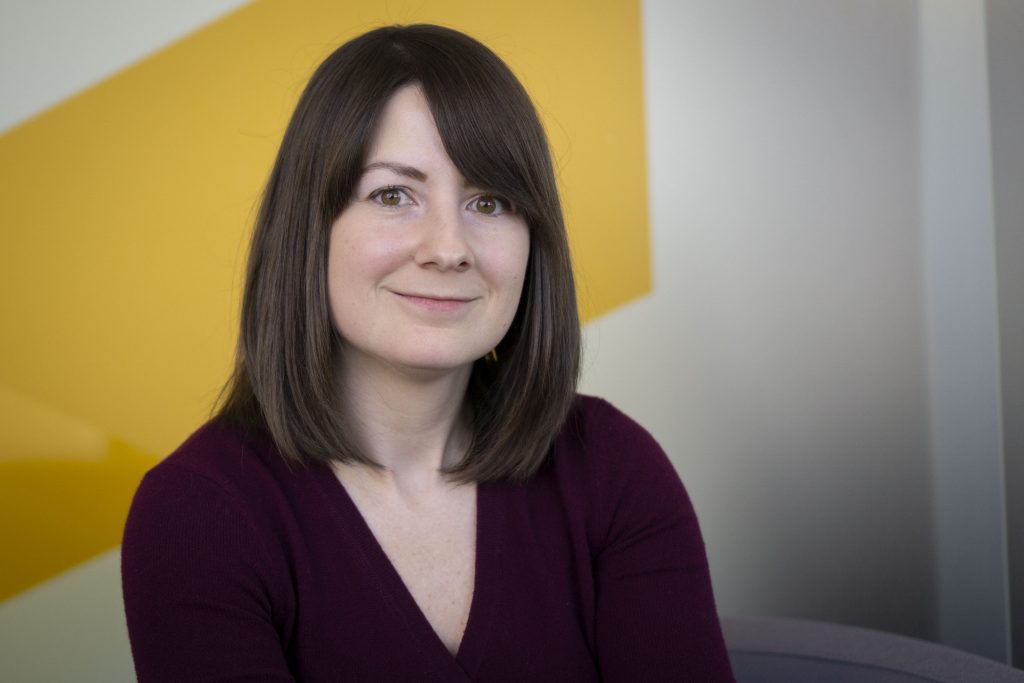As with many topics, context is important. The times we are living in, while seemingly omnipresent to us all—a global pandemic, domestic civil unrest, economic hardship, and the rest of the issues that have filled out the calendar in 2020—have been especially challenging for journalists.
At an event hosted by the American Constitution Society on October 8, Katie Townsend, legal director of the Reporters Committee for Freedom of the Press, discussed the legal and ethical complexities facing journalists as they report today’s news, and the importance of defending press freedoms.
First on her agenda was the economics of journalism, particularly local journalism. Labelling the issue a “crisis of democracy,” Townsend articulated the extent to which shrinking newsroom budgets and the difficulty of sustaining a viable business model in the age of social media and technological disruption have made it difficult for the press to carry out its traditional role in society. Increasingly having to defend against overzealous and unfounded libel litigation, she said, puts additional financial strain on news organizations. The situation is compounded by growing hostility and animus on the part of elected leaders towards the press.
In addition to those woes, pandemic restrictions designed to keep the public safe and away from one another, also have worked to keep reporters away from the frontlines, impeding their ability to gather information, Townsend said. In other circumstances, for example when protests have turned violent, journalists on scene have found themselves targets of a mob’s anger.
Townsend lauded the recently released Netflix documentary, The Social Dilemma, which is described by its filmmakers as “explor[ing] the dangerous human impact of social networking, with tech experts sounding the alarm on their own creations.” The film demonstrates the ease with which disinformation and divisive topics spread on social media, and how it has displaced the role of the traditional press in a number of respects.
Surprisingly, Townsend expressed support for a section of the law that has been widely criticized and debated of late in Washington by politicians, news organizations, and technology companies on all sides: Section 230 of the Communications Decency Act. The section is part of a 24-year-old law that has come to govern much of the modern internet. In essence, it allows, within some limitations, internet companies to avoid liability for the conduct and content that users engage in or post on their sites. The intent of the law was to protect nascent 1990s American internet companies from excessive litigation that might have stifled their efforts to grow the World Wide Web.
The result has been the modern internet, which, along with its benefits, has had many unintended consequences as it relates to the algorithms that power much of it—driving polarization and enabling foreign interference as has been discussed extensively during the last several years. However, as Townsend indicated, Section 230 can also protect free expression and is important for that purpose.
Section 230 can be said to have created something of a double-edged sword. It has allowed a flourishing array of online platforms that have enabled free and instantaneous speech around the world, while also driving people to partisan extremes by propping up divisive social issues, spreading misinformation, and straining the budgets of news organizations and journalists whose customers have turned to free online alternatives to consume information.
Townsend highlighted numerous examples of the Trump Administration’s “norm-breaking” animosity towards the press and alluded to the manner in which the Trump White House has continued a trend that began in the Obama administration of strongly cracking down on staff “leaking” to the media.
The event provided law students with useful insights into what’s unfolding behind the scenes in the media and underscored the need for passionate professionals to get involved in the politico-media complex.


